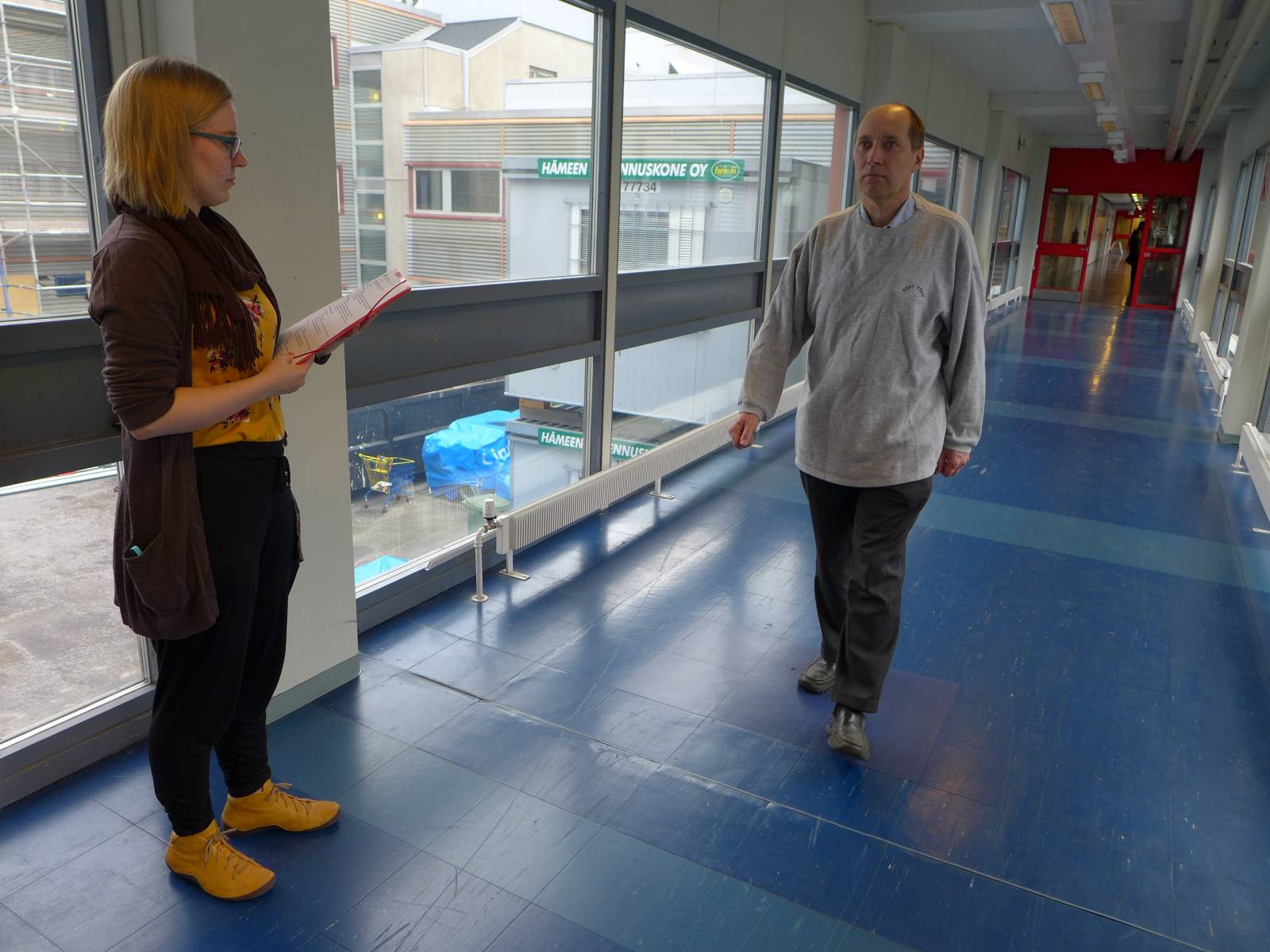Käveli project builds a system to monitor and analyze the walking patterns of Parkinson’s disease patients at home. Home monitoring is done using the sensors of the smartphone, force sensor integrated to smart insoles of shoes and wrist-worn accelerations sensors. The target of the project is to study if the home measurements could be utilized for assessing the state of the disease and for following its changes and the effect of medication. Measurements are conducted for a total of 150 participants, of whom 100 have Parkinsons disease. Project is done in collaboration with Tampere University, Satakunta Central Hospital, Suunto Oy, Forciot Oy and Orionpharma Oy.
Background
Parkinsons disease is a neurological disease affecting the ability to move and live independently. The symptoms progress over time, but they vary a lot. Thus accurate and objective evaluation is difficult during a short clinic appointment. Home monitoring could give more objective and extensive information about the status of the patient.
Goal
The key research questions of the project is to assess how well the motor symptoms related to the level of the Parkinson’s disease can be detected from the long-term home measurements, and which set of sensors would provide the best results. In the project signal processing and machine learning methods are utilized in building the system. Longer-term vision of the research is, that the motion analysis could be utilized for monitoring the development of the disease, monitoring the effectiveness of rehabilitation, interventions, and treatments, and ultimately as a tool in decision support systems.
Co-operators
Satakunta Central Hospital
Suunto Oy
Forciot Oy
Orionpharma Oy
Contact persons
Docent Jari Ruokolainen
jari.ruokolainen@tuni.fi
+358 50 482 1353
Project researcher
Milla Juutinen (nee. Jauhiainen)
milla.juutinen@tuni.fi
Data was collected in 2018-2019, and data analysis is ongoing.
Publications related to the project:
2020:
Juutinen M, Wang C, Zhu J, Haladjian J, Ruokolainen J, Puustinen J, et al. (2020) Parkinson’s disease detection from 20-step walking tests using inertial sensors of a smartphone: Machine learning approach based on an observational case-control study. PLoS ONE 15(7): e0236258. https://doi.org/10.1371/journal.pone.0236258
2019:
Ruokolainen J, Jauhiainen M, Puustinen J, Vehkaoja A, Nieminen H. Design rules for the healthcare platform ecosystem–Parkinson disease case. IMP Conference Paris 2019, https://www.impgroup.org/paper_view.php?viewPaper=11111
Jauhiainen, M., Puustinen, J., Mehrang, S., Ruokolainen, J., Holm, A., Vehkaoja, A. and Nieminen, H., 2019. Identification of Motor Symptoms Related to Parkinson Disease Using Motion-Tracking Sensors at Home (KÄVELI): Protocol for an Observational Case-Control Study. JMIR research protocols, 8(3), p.e12808.
2018:
Mehrang, S., Jauhiainen, M., Pietil, J., Puustinen, J., Ruokolainen, J. and Nieminen, H., 2018, July. Identification of Parkinson’s Disease Utilizing a Single Self-recorded 20-step Walking Test Acquired by Smartphone’s Inertial Measurement Unit. In 2018 40th Annual International Conference of the IEEE Engineering in Medicine and Biology Society (EMBC) (pp. 2913-2916). IEEE.

